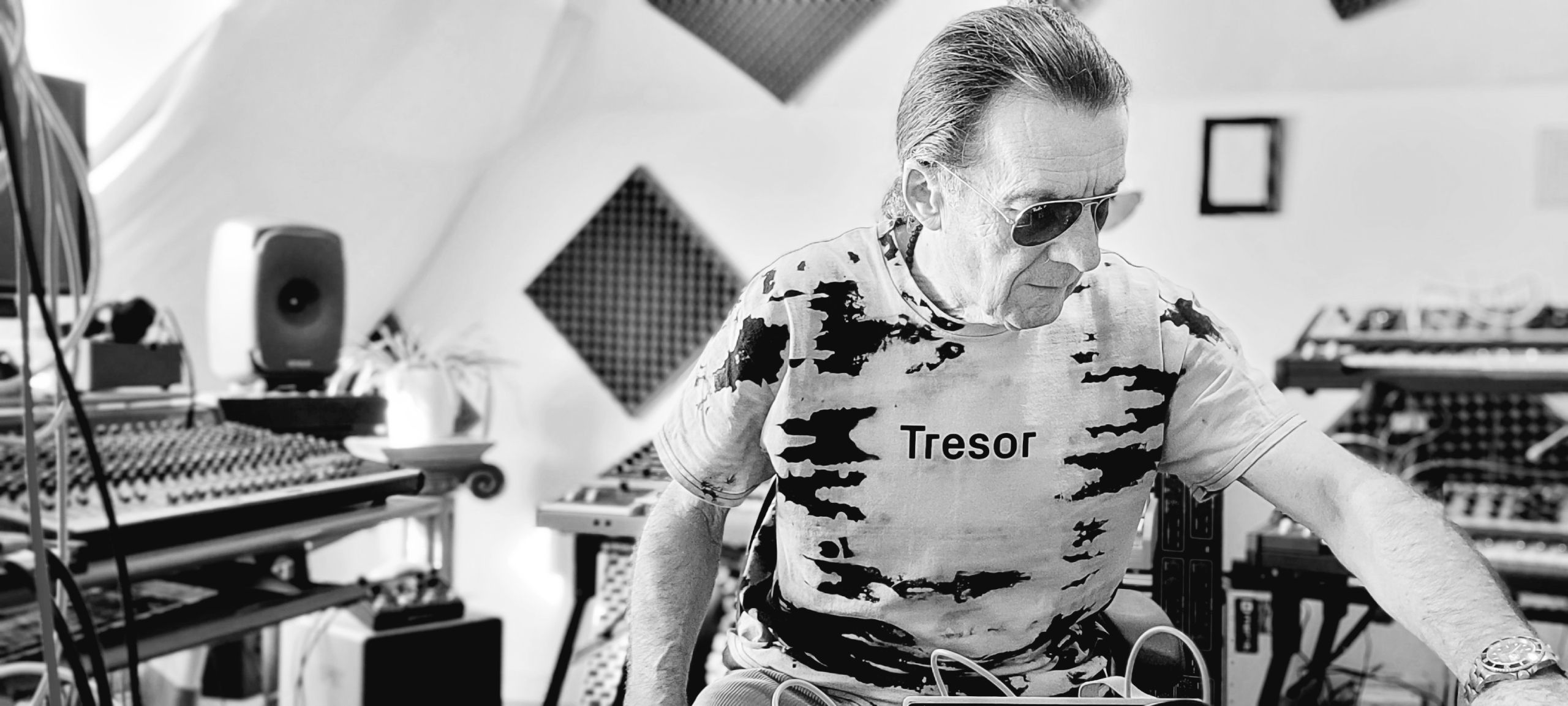
Interview with Afterlife (Steve Miller) & Moonseed (Yushi Li)
Share This Article
Bridging continents and cultures, Afterlife and Moonseed have crafted an album that flows like water—effortless, immersive, and profoundly rooted in the wisdom of the Tao Te Ching. Recorded remotely between the UK and China, this unique collaboration draws on ancient Taoist philosophy, ambient soundscapes, and intricate percussion to create music that evolves with every listen. From the spontaneous spirit of Wu Wei to the gentle guidance of traditional Chinese instruments and Balearic textures, the album is a serene yet deeply layered journey. We spoke with both artists to uncover how their creative process unfolded across time zones, philosophies, and sonic traditions.
How do your individual backgrounds—Moonseed’s classical and ethnic roots, Afterlife’s Balearic electronica—find balance in this record?
Moonseed:
I enjoy a wide range of music styles—Hip Hop, Neo Soul, Jazz, Electronic, World Music, various forms of chanting, and ethnic music from different cultures. I love experimenting with different genres and blending my own sound into them. It’s something that excites and inspires me deeply.
Afterlife:
I was also trained classically on the piano from the age of 6 years old so we had no trouble understanding each other musically or with music theory. I have always made ambient music with different flavours like hip hop, flamenco, dub, jazz, classical, african, latin american. psychedelic, even opera, stuff that inspires, I like playing around with flavours, The balearic tag I have is just because Jose Padilla made my music very popular in Ibiza and consequently worldwide as his Cafe del Mar compilation series became huge, he always called it an ambient compilation because that is what he played out.
Moonseed has made a great ambient hip hop track called “Sage”, you should check it out, Jose would have loved it. It really should be massive.
So I think we balance each other nicely.
What emotions or imagery were you aiming to evoke in the listener throughout the album?
Afterlife:
We never discussed this but I think subconsciously we hoped it would give the listener a positive feeling for life, to go within themselves and discover true peace as it is a sonic version of parts of the Tao. The Tao Te Ching has so many different translations so it can be confusing at first. Words are clumsy in comparison to music or a good painting for communication. The feedback I get is that it sounds like nothing else and is quite unique, in a good way, I hope…
Moonseed:
As the entire album presents, we hope it brings a sense of peaceful strength to the listener. One important phrase from the Tao Te Ching is: “Empty yourself completely; and abide in deep stillness.” We hope our music can guide the listener into a profound state of silence, allowing them to immerse in this stillness and, perhaps, offer a sense of positivity and healing.
There’s a sense of healing and transformation embedded in the music. How intentional was that, and how do you both define healing through sound?
Afterlife:
So good that you feel this! That is precisely the intention. My definition is any sound that makes you feel good must be a healer. I believe the opposite is also true.
Moonseed:
Maybe it’s because all our inspiration comes from the Tao Te Ching, which has such a healing effect on me. Every time I read certain chapters, I feel like my spirit is being opened. After reading those chapters and then producing the music, I was deeply moved, and perhaps that’s why these healing sounds just flowed out naturally. When we were working on “LYING LOW IN STILLNESS”and “HIDDEN DEEP”, we tuned our instruments to 432Hz. These two tracks are at 432Hz. Personally, music at 432Hz has a way of creating a calming and warm feeling, and this was a decision we made intentionally.
Moonseed, can you talk about your connection to nature and how it influences your compositional style?
Moonseed:
Personally, I believe the sounds of nature are the most beautiful kind of music. I love to go to the riverside near my home just to listen to the conversation between the water and the wind, and to the songs of insects and birds. Their sounds are inherently healing. Nature and animals are joyful and peaceful beings, and the sounds they make naturally carry that joyful energy. So when I create music, I often try to express the feelings and joy they bring me through my instruments, which also helps me keep my sound design raw and organic. Nature is the source of all my inspiration.
Afterlife, how has your evolution from early downtempo to ambient meditation shaped your approach to this collaboration?
Afterlife:
As I said before, the Afterlife material has always been ambient, just evolving through different flavours. My only approach to this collaboration was to try something new with no preconceptions whatsoever; only to translate a verse from the Tao into whatever music it inspired, one verse per track. The first track I sent Moonseed was “The Cycle Of Life”. I was surprised and elated when she sent me her parts including vocals, it all made so much sense.
Moonseed’s first track I received was “Things Will Flourish” with 40 tracks already! I added some Taiko and Timpani drums to her drum parts to get a powerful sound then played the Buchla Music Easel on several tracks, the trick was not overcrowding the track so lots of distilling and more listening went on over months. After that we found this approach worked really well so went with it. Wu Wei.

Was there a guiding principle or mantra that held the project together during moments of creative difference?
Moonseed:
I think we were both honest in expressing our thoughts and feedback. In a collaboration, it’s really important to communicate openly while also staying humble and trying to see the music from the other person’s perspective. I believe we both did our best in these aspects, which is why the whole album came out smoothly.
Afterlife:
When we agreed on the collaboration the only mantra was complete honesty, if one of us did not feel a particular music part then we must say so immediately because this is the nature of collaboration, 100% agreement at all times and respect for each other’s opinions. We had very few creative differences and these were easily dealt with by good clear communications, most of those differences came about when we heard what the other person had contributed and decided that something that was already there needed to be changed/improved/muted to fit the new musical parts better. Just as if we were in the same place working at the same time.
One of the great things about a collaboration is you get to see the other person’s perspective, we both learnt a lot and it was all good. We are really good at understanding each other’s musical sketches, we realised this after the first 2 tracks, so it was a really easy process.
What do you hope listeners carry with them after spending time with the album?
Moonseed:
I hope the music brings them into a deep stillness and joy.
Afterlife:
A sense of their true value as an eternal spirit in an expanding universe.
Pe order Linkfire https://orcd.co/9vgya8e
Bandcamp https://afterlifemusicofficial.bandcamp.com/album/afterlife-moonseed-hidden-deep
IG


